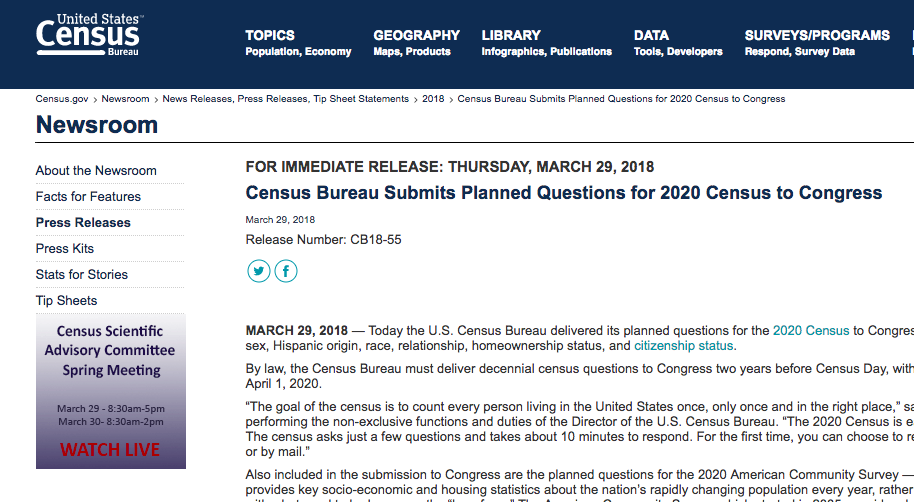
The Trump Administration’s plan to add a citizenship question to the 2020 census has met resistance, and 12 states have announced plans to sue to stop it from being added. The concern is that the question will cause some residents not to participate in the census, which will result in an undercount, and that will affect funding for schools, health care and law enforcement.
The Constitution requires that the census count all residents, not only citizens, and asking the citizenship question will work against that. According to New York attorney general Eric Schneiderman, the decision “will create an environment of fear and distrust in immigrant communities that would make impossible both an accurate census and the fair distribution of federal tax dollars.”
The concern isn’t simply that undocumented immigrants won’t participate in the census; it’s that legal ones won’t either. The administration’s anti-immigrant rhetoric has caused many would-be respondents to fear that their information and that of their loved ones will be passed to ICE. And even if the respondents have lawful status, they fear that friends and family who aren’t might come under scrutiny as a result. The Census Bureau can’t share information in that way, but Trump’s obvious antipathy for anything that gets in his way gives America’s immigrant community reason to doubt the firewall that theoretically secures census information.
The question, viewed in the context of the Trump Adminstration’s posture toward immigrants and effort to reduce the number of immigrants with lawful status, is perceived as ominous. According to Census Bureau researcher Mikelyn Meyers, “This seems to be related to questions of legal residency or the perception that certain groups are not welcome.”
Are you having legal issues with Immigration? Do you need legal representation?